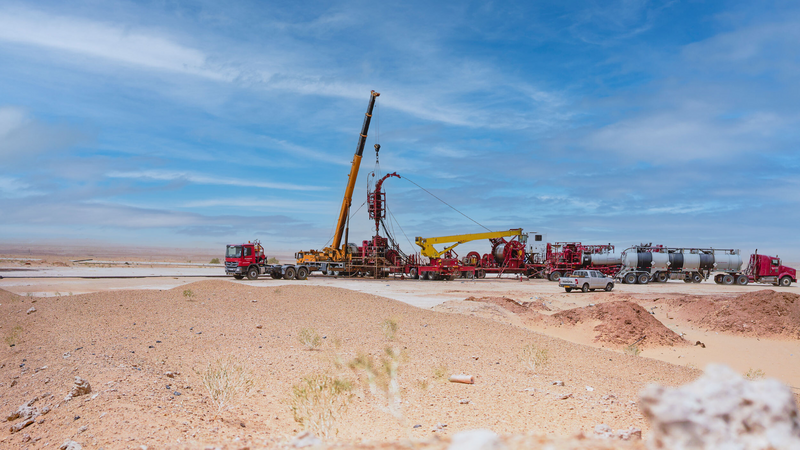 Search
Search
 Search
Search
Multi-PSL team delivers over 150,000 BOEPD of additional production in a challenging environment
Download PDFMature Fields

Deliver LWIS in a challenging HP/HT field with high H2S content

Caspian Sea, Kazakhstan

Halliburton was awarded a multi-service contract from an independent oil company to provide Light Well Intervention Services (LWIS) in a challenging high-pressure/high-temperature (HP/HT) field with high hydrogen sulfide (H₂S) content, and with 28 wells and five production islands. The contract began in July 2017 and is due to continue until mid-2021.
For this operator, the risks associated with conducting these multi-platform well intervention operations included:
These challenges had the potential to add significant cost to the project’s economics.
The Halliburton Project Management team was also tasked with leveraging Halliburton well intervention expertise during the planning and operational phases.
Health, safety, and environmental (HSE) exposures, given the sensitive nature of the worksite and the potential for incidents on an offshore installation, were treated with the expected due diligence, and these considerations drove the implementation of scope-specific HSE key performance indicators (KPIs).
The well portfolio varied in complexity, and there were several unknowns in the wellbore – e.g., pressure under plugs, challenging wellbore materials (such as scale), various well integrity questions, and water production – that required extensive contingency planning. Equipment selection was imperative to cover the provision of all well scenarios and remediation techniques. The application of innovative technology and the implementation of multi-skilled personnel were imperative to positively impact the project delivery from commercial and technical perspectives.
Halliburton was awarded a multi-service contract to provide pumping, bleed-off, coiled tubing, slickline, e-line, and stimulation services.
Alignment was key between all project stakeholders, as common project delivery durations meant that all were accountable for performance and were mutually incentivized to collaborate in order to achieve the project’s goals. Similarly, alignment for HSE at the worksite drove a “one team” safety culture offshore.
A Halliburton team – including a project manager, well intervention engineers, a performance development coordinator, and product service line (PSL) representatives – were assigned to the project.
Successful implementation of the above required:
The Halliburton team captured lessons learned and opportunities for improvement, and leveraged experience from previous projects, to help foster a safe work environment focused on continuous improvement.
Health, safety, and environmental (HSE) issues
BOEPD additional production
USD project cost savings achieved
Wells and five production islands
The project has been operating safely and efficiently since July 2017, with production optimization levels ahead of the originally planned schedule, and with zero HSE incidents. Additionally, production was increased over 150,000 BOEPD, with minimal non-production time (NPT), resulting in project cost savings of more than USD 300 million by reducing deferred production revenue. The multi-skilled Halliburton crews were able to carry out all required services, thus providing significant efficiency improvements, and time and cost savings.
This successful project delivery has allowed Halliburton to gain access to other well intervention work scopes in the Caspian area, and to build on our track record of notable well intervention operations in this region.

Addressing the toughest issues in well intervention, Halliburton offers services to extend well life, improve performance, and limit downtimes.

Halliburton drives efficiency and maximizes asset value through collaborative engineering, resource integration, and risk management.
